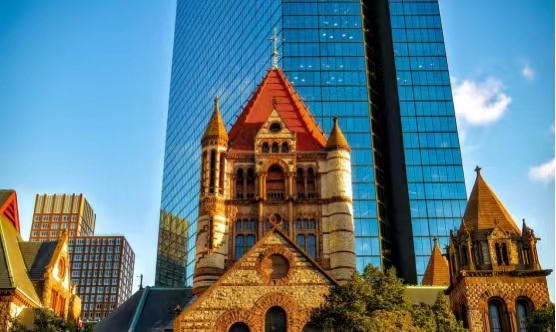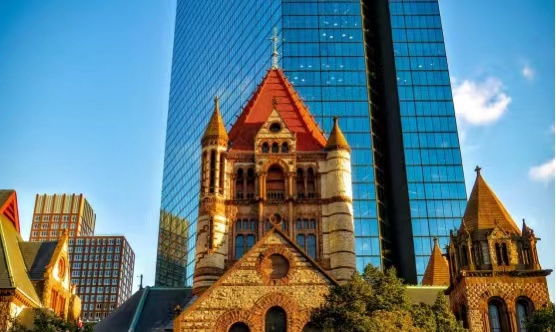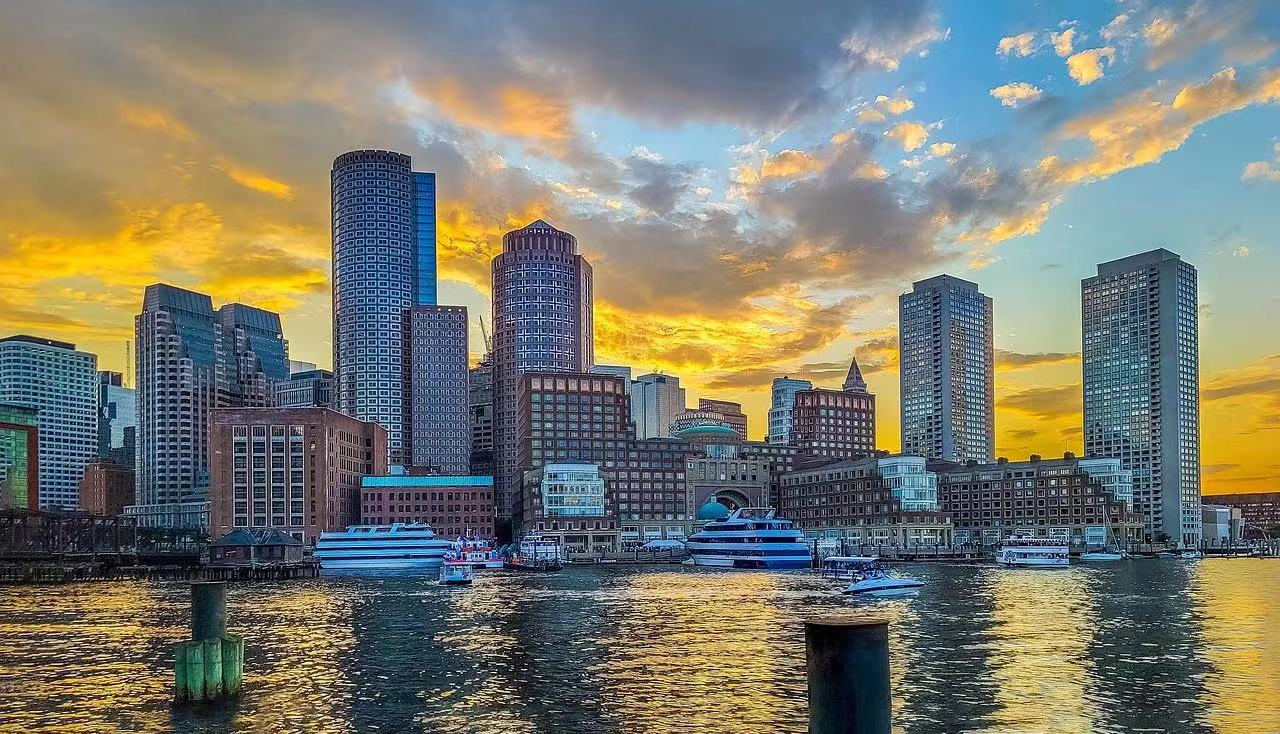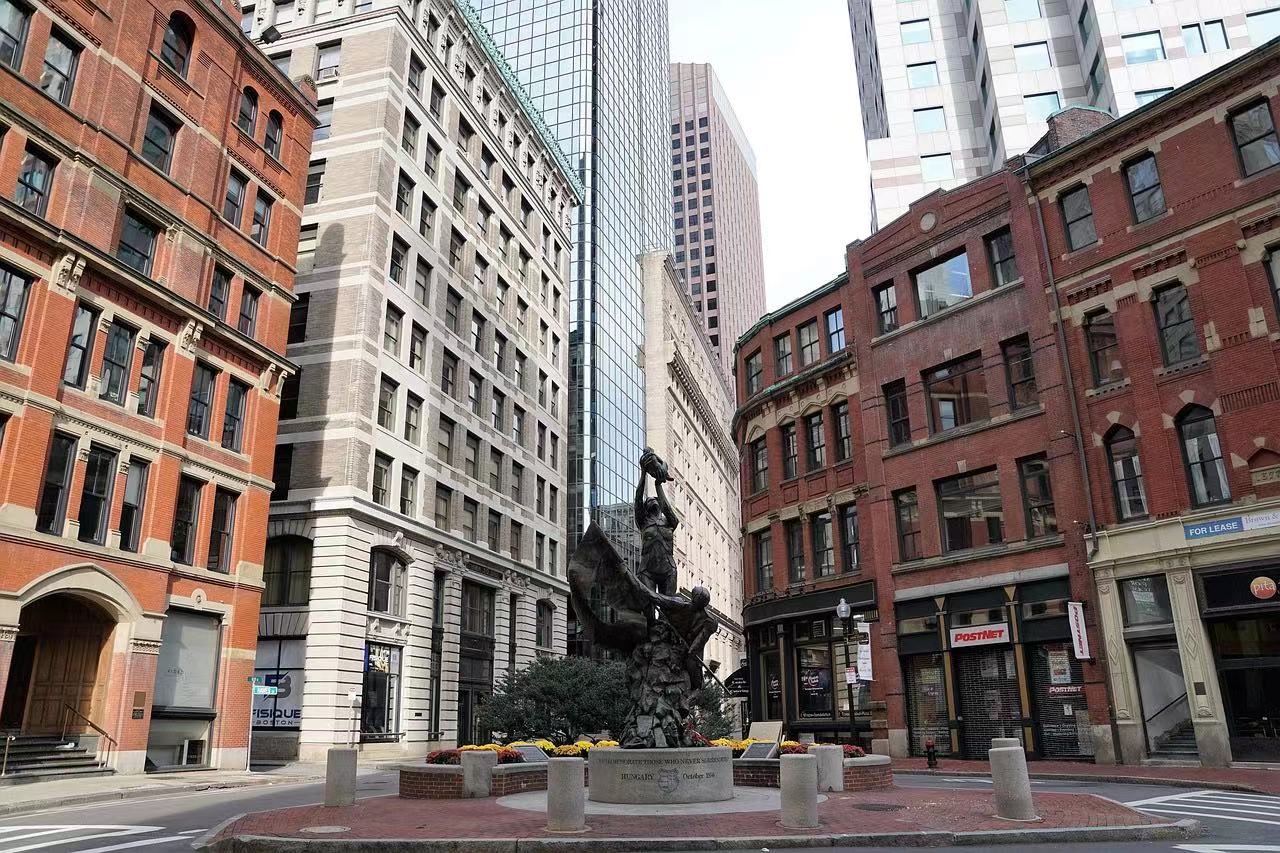
1. Introduction
Boston is the capital and largest city of Massachusetts, USA, and one of the main birthplaces of American history and culture. Boston radiates to more than 100 surrounding towns to form the Greater Boston, including Braintree, Cambridge, Chelsea, Quincy and Somerville, covering an area of 12,105 square kilometers and a population of 8.29 million (2018). The Boston metropolitan area is the most educated area in the United States and is the center of education, finance, scientific research, industry and tourism in the United States. Key industries in the Boston metropolitan area include educational services, health care, biotechnology, finance and insurance, high-tech, hotel and catering services, construction engineering, etc. According to the Bloomberg 2020 National Innovation Index, Massachusetts ranks second in the United States, behind California.

Photo from https://pixabay.com
2. Overview of innovation development
(1) Innovative development strategy
Boston proposed the strategy of building an "innovation city" in 2010, planning innovation-friendly urban areas, incubating high-quality innovative enterprises, and at the same time coordinate and integrate within the region to promote the flow of innovation resources. In practice, the Boston metropolitan area relies on the advantages of university scientific research institutions in the region to create an innovation ecosystem that closely integrates industry, academia and research. Through cross-field and cross-industry innovation, it has formed high-tech industrial clusters such as biopharmaceuticals, health care, microelectronic chips, and automation. Using financial advantages, it brings together industrial funds, venture capital and wealth management industries to form a financial support system for innovative industries.

Photo from https://pixabay.com
(2) Innovation and development entities
Government agencies: The Boston Metropolitan Area Planning Commission serves the regional development and regional cooperation affairs of 101 cities/towns in the Greater Boston area. It has 8 sub-regional committees and Its management affairs include economic development, environment, housing, public health, public safety, transportation, collective procurement, community planning, community participation, data services, etc. The core regional committee is composed of representatives from 21 cities/towns including Boston, Somerville, Cambridge, Chelsea, etc. Under the framework of the Boston Metropolitan Area Planning Commission, there is also the Metropolitan Mayors Alliance, which is composed of leaders from 15 cities including Somerville, Arlington, Boston and Cambridge.
Colleges and Universities: Boston is known as the “Athens of America”. There are more than 100 universities in the Boston metropolitan area, and more than 250,000 college students are educated here. The main well-known educational institutions in the Boston area include Harvard University, Massachusetts Institute of Technology, the Taft school, Boston College, Brandeis University, Boston University, Northeastern University, etc. Among them, Cambridge is the location of two of the most famous universities in the world - Harvard University and MIT. The transformation and application of scientific research results in universities is the main way to spawn emerging industries in cities.
High-tech enterprise:
a. Biopharmaceutical enterprises
Greater Boston is the world premier and most effective biotechnology super cluster. Massachusetts has six major biotechnology clusters and Boston-Cambridge is the core-area. In addition, there are Northeast, Worcester, West, Highway and South Coast, covering development and production of new drugs. In recent years, the Boston Redevelopment Authority (BRA) has implemented the LifeTech Boston, which is committed to promoting the growth of the regional life sciences field, expanding the scale of life sciences companies, and attracting domestic and multinational companies to settle in Boston. Boston, Cambridge, Quincy, Somerville and Braintree have also jointly established the Life Sciences Corridor, focusing on the field of life sciences, with more than 240 biotechnology and pharmaceutical companies including Genzyme, Biogen Idec, Novartis, Charles River Laboratories, Pfizer and other world-famous biopharmaceutical companies.
b. Health care companies
The Boston metropolitan area is the largest medical research center in the United States and a global research, diagnosis and treatment center for difficult and complicated diseases. It has the top teaching and research hospitals in the United States. The income from the medical services industry accounts for more than 20% of Boston's total revenue and more than 35% of the health services industry in Massachusetts, far ahead of the U.S. average. This region has concentrated the most advanced medical instruments, equipment, medical and health product and manufacturing companies in the United States, providing support for the refined division of labor in medical services. In addition, Boston launched a diversified digital health strategy in 2016. With the support and vigorous promotion of the government, universities, medical institutions, industry associations, etc, Boston is expected to become a pioneer in the field of digital health care investment and activities in the United States. There are 33 hospitals in the area, including the world-known health, medical education and medical research center Longwood Medical and Academic Area (LMA), Massachusetts General Hospital, Mass General Hospital.
c. Semiconductor microelectronics companies
Route 128 is a semiconductor industry cluster that predates Silicon Valley. Route 128 is a semi-circular highway in Boston, about 16 kilometers away from downtown Boston. Driven by well-known universities such as MIT and Harvard University, Route 128 is lined with large and small companies and factories in electronics, aerospace, defense, etc, forming a high-tech industrial cluster, second only to Silicon Valley in the United States. The Microelectronics Technology Center is also known as the "Golden Semicircle" or "America's Technology Highway."
Financial institutions: Boston is the third largest investment management center in the world after New York and London, and the largest fund management center in the United States, accounting for 27% of the country’s financial services. It is also one of the most important places for entrepreneurial investment in the United States. Many investment management companies, including Fidelity Investments, the world's largest mutual fund company, were born here. The Boston Stock Exchange (BSE) is the third stock exchange in U.S. history and the fastest growing stock exchange in the United States. Boston's banking industry consists of four major banks: Fleet Bank, Boston Bank, State Street Bank and Citizens Bank. Boston also has two of the top 10 insurance companies in the United States: Liberty Mutual Insurance and John Hancock life insurance company.

Photo from https://pixabay.com

